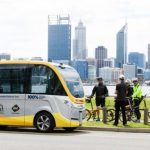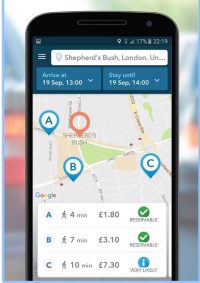How to socialize great smart cities strategies for all urban centers
How to socialize great smart cities strategies for all urban centers

The Smart Cities for All initiative, led by G3ict (Global Initiative for Inclusive ICTs), with the support of Microsoft, has helped to produce a new toolkit to assist cities with implementing smart city programs that can help all community members.
In a recent survey of more than 250 experts worldwide, research has found that 60 percent of people feel that smart cities are failing persons with disabilities and older persons.
See Also: Asia tipped to be the global smart cities leader
“Our discussions with city CIOs worldwide tell us that once they become more aware of this digital inclusion issue, of disability and accessible ICTs, they are strongly interested in addressing it–but they also know they need help and guidance in doing so,” explains James Thurston, G3ict’s Vice President for Global Strategy and Development, to Cities Today. “As part of our new toolkit, we have created the smart cities for All Database of Solutions for Digital Inclusion to help solve that very problem.”
Although cost is an issue for the global south, research proves that it isn’t the main barrier, more broadly speaking.
“The biggest barrier to making a cities digital services accessible is the lack of awareness,” states Dr. Victor Pineda, President of World Enabled and Co-Chair, Persons with Disabilities, on the General Assembly of Partners. “Cities that do incorporate ICT accessibility end up benefiting in surprising ways, such as lowering the cost of localizing content, as well as maintaining or updating their website.”
The toolkit offers a model accessible ICT procurement policy along with an inventory of ICT accessibility technical standards. Also included in the kit are a database of smart city solutions and a communication tool that shares the benefits of ICT accessibility.
Looking hard at strategies
The toolkit highlights six strategies that are in need of implementation if cities are to make serious progress towards digital inclusion. These strategies include providing direct technical assistance to smart cities, driving accessible technology innovation in smart cities solutions, changing the global narrative, expanding tools offered to smart cities, evangelize ICT accessibility at a global scale and growing capacity via training and providing more knowledge.
As Thurston and Pineda prepare to work on phase two of their plan, they will be looking into building more strategic partnerships to support direct technical assistance to cities.
“In order to ensure that ICT accessibility is deeply embedded into these emerging norms, partnering with multilateral institutions and international NGOs engaged in smart cities work is critically important,” adds Pineda.
The post How to socialize great smart cities strategies for all urban centers appeared first on ReadWrite.
(27)














